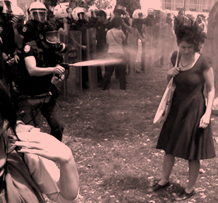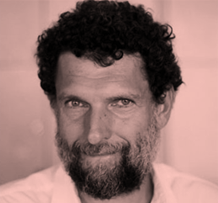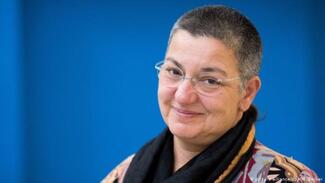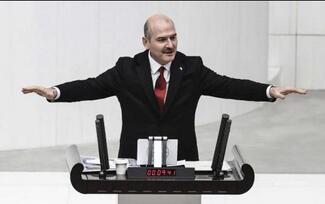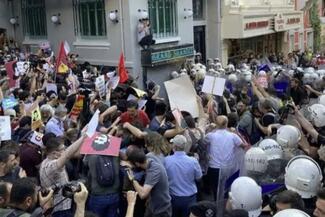
A Turkish court on Friday extended the imprisonment of philanthropist Osman Kavala, whose case caused a diplomatic crisis with the U.S. and other Western countries after they called for his release.
The court’s decision paves the way for the Council of Europe to launch infringement proceedings against Turkey.
Kavala has been incarcerated without being convicted for more than four years, prompting claims of political persecution against the businessman amid international criticism of Ankara’s crackdown on opponents.
“This trial is yet another brazen episode in the relentless political persecution for which the European Court has condemned Turkey,” said Nils Muiznieks, Amnesty International’s Europe director.
“When a state shows such disregard for it’s obligations under the European Convention on Human Rights, the Council of Europe Committee of Ministers must take action and initiate infringement proceedings.”
The Council of Europe, a 47-member bloc that upholds human rights, warned Turkey in September that it would begin proceedings unless it released Kavala before a ministerial meeting next week.
The process could lead to Turkey’s membership or voting rights being suspended, further isolating Ankara and threatening a key link to Europe.
The ambassadors of 10 countries, including the U.S., Germany and France, last month demanded Kavala’s immediate release in line with a 2019 European Court of Human Rights ruling. Turkish President Recep Tayyip Erdogan threatened to expel the envoys before backing down.
The European court’s decisions are binding on its members and had demanded Kavala’s release two years ago pending trial, saying his imprisonment aimed to silence him and was not supported by evidence of an offense.
Turkey maintained he was being held according to the rulings of its independent judiciary.
Kavala, 64, is accused of funding nationwide anti-government protests in 2013 and helping orchestrate a coup attempt three years later. He denies the charges, which carry a life sentence without the chance of parole.
Kavala did not attend Friday’s hearing at the Istanbul 13th High Criminal Court. He having previously said his presence via video link from Istanbul’s Silivri prison was “meaningless” and a fair trial “no longer possible.”
His wife Ayse Bugra, opposition lawmakers and foreign diplomats were present. Riot police and water cannon vehicles were posted outside the courthouse.
Kavala was acquitted in February last year of charges in connection with 2013’s Gezi protests, but the ruling was overturned and linked to charges relating to the coup attempt.
His trial is now part of a merged case involving 51 other defendants, including fans of Besiktas soccer club who were acquitted six years ago of charges related to the Gezi protests before that decision was also overturned.
Turkey’s fractured relations with the West partly stem from criticism of its human rights record since the failed putsch, which saw some 250 people killed, and a foreign policy that has often put it at odds with fellow NATO members.
Ankara is also facing a economic crisis that has seen the lira hit record lows over the last two months, losing 20% of its value in November.
Kavala’s links to the Open Society Foundation of billionaire financier George Soros have loomed large in his case, with Erdogan referring to him as a “Soros leftover” in speeches.
Te next hearing will be held on Jan. 17.
